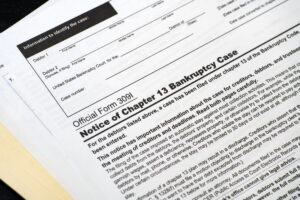The Bankruptcy Code allows an individual debtor to hold back from the bankruptcy process certain property. Such property is called an exempt asset. Exempt assets are protected by state law from distribution to creditors. Examples of exempt assets include vehicles up to a certain value, equity in a home up to a certain value, and tools of your trade. Exemptions must be claimed or lost and they are claimed on Schedule C. If no one objects to the claimed exemptions within a specified time, the assets may not be part of your bankruptcy estate.
The Bankruptcy Code allows states to choose to use their own exemptions rather than the exemptions listed in 11 U.S.C. §522, and Colorado has done that. Colorado State Exemptions can be found in the Colorado Revised Statutes, which are available at law libraries. Many of the Colorado exemptions can be found at Colo. Rev. Stat. §§ 13-54-102 and 38-41-201 et. seq.
Deciding which assets are exempt can be one of the more important and complex parts of your bankruptcy case often requiring legal judgment as to your particular circumstances. It is extremely important to consult an attorney if you have any questions. The failure to list all property in which an exemption may be claimed and to properly claim an exemption may result in the loss of the right to claim the exemption.


